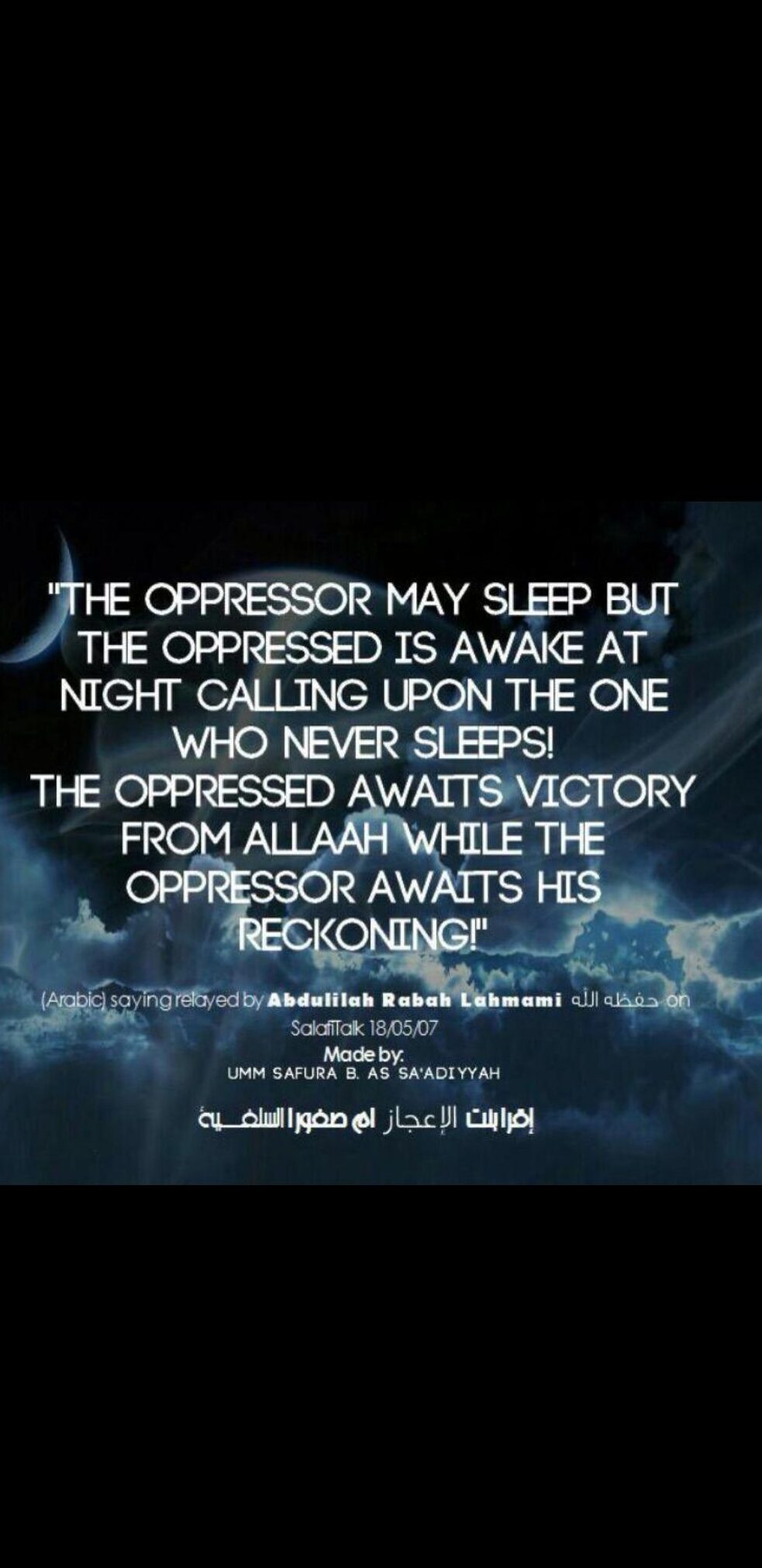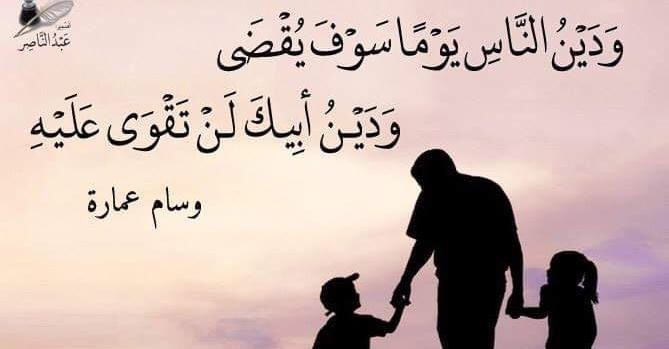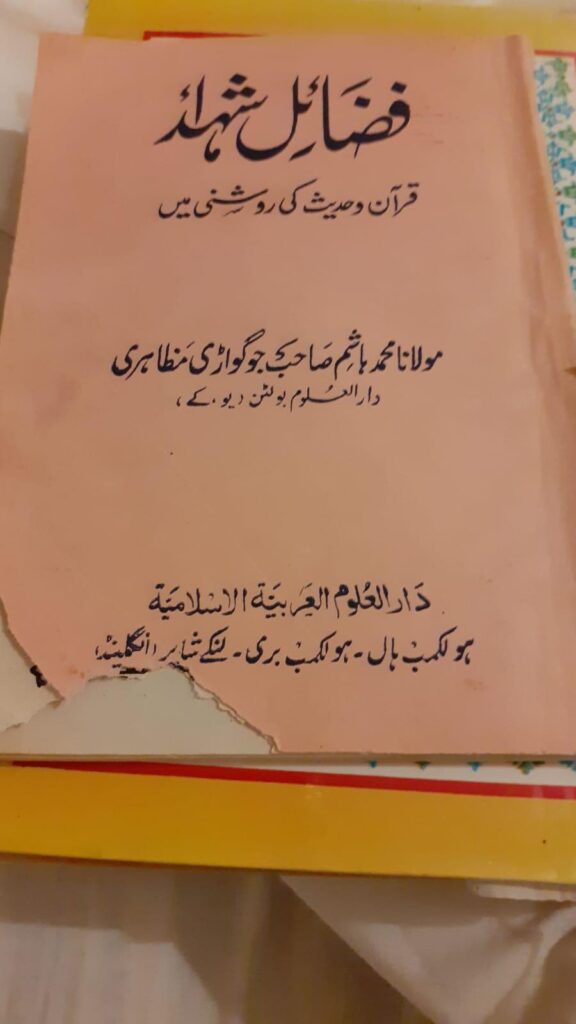Below is an extract from Hazrat’s talk on 10/09/18 in Masjid-ut-Taqwa, Pietermaritzburg. It is an explanation of an article by Ml. Ashraf Ali Thanwi (RA), translated by Madrasah Uloomish Shariyyah – mushariyyah@gmail.com. The article text is in blue, Hazrat’s talk is in black. To listen to the talk, click here.
Nowadays, we often hear the complaint that Ulama are disunited. We are accused by the laymen of splitting up the Ummah and being intolerant towards different opinions. Opinions and views that are rooted in falsehood, have no place in Deen. Our nafs inclines towards these views, thus, the one who holds them is viewed in a positive light by the masses. The Ulama who speak out, respectfully yet firmly, against these views are considered “intolerant”.
Due to lack of scholarship and expertise in religious matters, laymen are unqualified to pass a judgement on the religious rulings of our qualified scholars. The views of laymen are personal opinions, the preaching of our scholars are the words of the Qur’an and Sunnah. At times, scholars differing is required. This article sheds light on these times, which we are faced with often in our current era. It is written by one of the greatest religious authorities of our modern era, Hazrat Ml. Ashraf Ali Thanwi (RA).
Not every form of Unity is Praiseworthy and not every form of Disunity is Disparaged/Condemned
Understand properly that unity is only needed and deemed praiseworthy when it is beneficial for Deen, and disunity is only frowned upon when it is detrimental to Deen. When unity is harmful for Deen and disunity is beneficial for Deen, then at that point, disunity shall be sought. The people of this world have clearly understood this reality in their daily activities. Thus, in a court case, when a plaintiff and defendent raise their matter to a court for arbitration, then neither of the two is told, “Abjure your claim, because it has created disunity between the two of you and disunity is discouraged”. Rather, the rule is that the person who is in contradiction of the Truth (Haqq) is told, ‘Return towards the Haqq and abandon your insistence upon the view that is in conflict with the Haqq’. In fact, in some matters, if the plaintiff forgoes his claim, then the government becomes the plaintiff and defends the Haqq.
Friends! If disunity is to be condemned in general, then in a court case, the judge ought to punish both the plaintiff and the defendant, as both are perpetrators of disunity. However, neither does this ever happen nor is it logical for such an opinion to be given. Rather, everyone agrees that although both parties are perpetrators of disunity, one party is doing so to uphold the truth (Ḥaqq) and the other party is doing so to uphold falsehood (Bātil). Hence, after investigation and research, the decree should be given in favour of the one who is upon the truth (Ḥaqq) and the court is required to support him. In this scenario, all agree that disunity is not always denigrated; however, regrettably, this rule is not applied to matters of Deen. In fact, [in matters of Deen], it is said to both parties, ‘Stop disuniting and create unity’.
This is because we do not hold our Deen as sacred as we hold our money, property and worldly affairs. We desire to fight even petty worldly cases in the courts, yet in Deen, we simply do not care the way we ought to. Hence, anyone can say anything and, “be tolerant!” is incorrectly hailed as the correct way forward. Know, that this is incorrect! Deen is not a toy to play with as we please, nor is it plasticine for us to shape as we please.
Support should be given to the Truth (Ḥaqq)
Friends! Why is it not investigated as to whose disunity is based upon an effort to defend the truth (Ḥaqq) and whose is to support falsehood (Bātil)? Then the one who is upon the truth (Ḥaqq) may be supported and pressure should only be out one the one who is upon falsehood (Bātil). As for your commanding both of them to create unity, tell me, why should a person upon the truth (Ḥaqq) unite with someone who is upon falsehood (Bātil)? If unity was to be attained between them, then logically this could only occur in one of three situations:
1) The individual upon the truth (Ḥaqq) abandons the truth (Ḥaqq) and both unite upon falsehood (Bātil), i.e. the pious individual leaves his piety and becomes irreligious.
2) The pious individual stays firm on his piety and the irreligious individual becomes pious.
3) The pious individual abandons some of his piety and the irreligious individual abandons some of his irreligiousness.
Now, those with intellect can decide themselves which of these three situations correlates with sound intellect. Indeed, it is only the second situation that can be labelled as being in agreement with sound intellect; the summary of which is that the pious individual has a right of disuniting himself from the irreligious individual, but the irreligious individual does not have the right of disuniting from the pious individual, rather, he is required to unite with the pious person upon the truth (Ḥaqq).”
Understand from this that unity is not our goal as a Muslim Ummah. Our goal is to uphold the Deen of Allah in order to please Him. If that comes at the expense of disunity, then so be it, for the truth needs to be spoken regardless. The following point explains this further.
An Example of Division
Friends! This [example] of disunity was started by Rasūlullāh Sallallahu Alayhi Wasallam in this world. This is because, before his prophethood, everyone was united upon disbelief. He arrived and broke this unity [upon disbelief], such that he became the cause of separation between father and son. This disunity is described by Allah Ta’ālā with the following glad-tidings:
“Oh you who believe, if you develop Allah-consciousness (Taqwā), he will grant you the Separator and he will remove your sins”
In this verse, Allah Ta’ālā the Almighty has expressed this “Separation” as glad-tidings and he has made [this glad-tiding] dependent upon Allah-consciousness (Taqwa). It is for this reason that the Qur’an is labelled Al-Furqān (the Divider). We realize from this that the Qur’an does not only unite. In some cases, it unites and in other cases, it divides. It commands one to join those who are upon the truth (Ḥaqq) and to disunite from those who are upon the falsehood (Bātil).
Thus, it is a grave mistake that people make in this day and age, that whenever they see disunity between two groups, they consider both of them to be worthy of blame and [they say], “What kind of Muslims are you? That you differ with one another?” Both are then forced to unite which means nothing except that the pious individual should abandon his piety and adopt irreligiousness and that the individual upon the truth (Ḥaqq) abandons the truth (Ḥaqq) and adopts falsehood (Bātil). This is blatantly wrong. Rather, the demand of sound intellect is that when there is disunity between two groups then it should first be established as to who is upon the truth (Ḥaqq) and who is upon falsehood (Bātil)? Once it is known as to who is upon the truth (Ḥaqq), then nothing should be said to the individual who is upon the truth (Ḥaqq), rather, he should be supported (in his disunity with the individual upon falsehood) and the individual who is upon falsehood (Bātil) should be prevented from disuniting with him. The Qur’an explicitly mentions this in one place:
“And so fight those who transgress until they return to the command of Allah”
And if you do not get the opportunity to investigate [who is upon] the Truth, then who has asked you to intervene? Sit at home! Without prior investigation, don’t rebuke others!”
[Ashraful Jawab, pg.476-478, Idarah Ta’lifat Ashrafiyyah: Multan]
Thus, when a person or group oversteps the boundary of Shari’ah and declares their transgression as Islam, it is imperative upon us to speak out and reclaim our religion. Scholars differing is due to their desire to protect Islam from being misunderstood, which we should respect rather than condemn. Allah has blessed us with scholars to remind us when we slip if they do not, who will? It is their duty.
Once in his talk, Hazrat Mawlana. Yunus Patel (RA) was condemning the Ansaar Souk organisers for branding their Souk as “Islamic” when in reality, it is far from it. The organisers called him and blamed him for disuniting the Ummah. The next day during Jum’ah, Hazrat reminded us again from the pulpit that this Souk is not as Islamic as they would like us to believe! He did not hold back in the name of tolerance and unity.
If there were five siblings in one home and their mother designated one day for each child, to decide what she would cook for the day. Let’s say the first child wants chicken curry, the next day the next child wants mutton curry. The mother would see no issue in cooking those meals and sharing it with the rest of the children. However, on the third day, if the third child wants her to cook poison, she would vehemently disagree. Furthermore, out of love, she would rebuke the child, for suggesting something that would harm him and the rest of the family.
In our Deen, irreligious opinions being passed off as Islam, things that were considered haram being regarded as permissible and unreasonable leniency, causes great spiritual harm. It is poison for us which will manifest itself on the Day of Judgement. Our scholars vehemently disagreeing is done out of love, to save us and the Ummah from harm. Therefore, next time you encounter a situation where scholars disagree, rather than making a big issue out of a scholarly disagreement, reflect on the situation first. Support the one on Haqq and encourage those on falsehood to repent. If we are unqualified and we do not know what the scholars are talking about, then leave it and do not get involved. That is better for the Ummah than us adding our uneducated, invalid, opinionated views to scholarly disagreements. May Allah grant us the ability to stay in our lanes, Aameen.
— Hazrat Mawlana. Dawood Seedat حفظه الله











 Read daily after Fajr (morning) and Asr (evening)
Read daily after Fajr (morning) and Asr (evening)